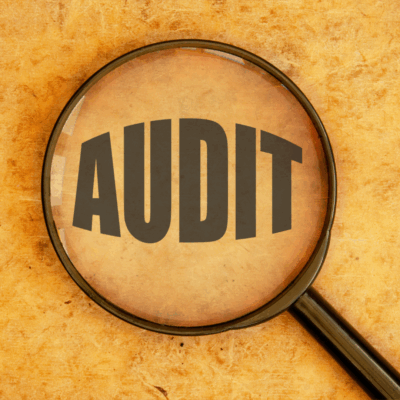What Is An HR Audit and Do You Need One?
According to our recent survey with HR leaders (C-suite, managers, administrators, and procurement specialists), only 17% believe their departments are fully prepared and optimized for the coming HR challenges and trends in 2024.
Inefficient and ineffective processes, systems, and policies can hurt a business—especially regarding HR.
Employment laws are constantly changing, meaning companies that don’t adjust their employment practices to keep up with the times can get caught on the wrong side of compliance, resulting in hefty legal fines.
Employee tastes, attitudes, and behaviors are also ever-evolving, and companies that fail to adapt to those shifts can miss out on top talent (and lose money from waning employee productivity and engagement).
That’s why companies conduct HR audits—to check in on the health of their various HR activities and goals and to pinpoint where they need to focus their attention to reduce risk (especially compliance risk) and set the business up for long-term success.
What Is an HR Audit?
An HR audit is a comprehensive, objective review and evaluation of an organization’s HR policies, practices, procedures, and systems. The goal is to assess the overall effectiveness and compliance of an organization’s HR function.
Audits are typically conducted by internal HR teams or external consultants specializing in this area, like Sheri Bender, this week’s guest on America Back to Work.
Bender owns Pulse HR Solutions, where she helps organizations change and improve their human capital management by offering audits and assessments that identify the effectiveness of the current workplace, compliance, and employee relations.
“It gives you a kind of roadmap of all the things that you should be doing based on the size of your organization and where you’re located—no matter what state you operate in or how many states you operate in,” Bender says about HR audits. “It looks at what you’re doing well and the areas you probably should pay better attention to.”
An HR audit is an opportunity to tighten up processes so that aspects like recruitment, retention, onboarding, training, salary and compensation, payroll, and performance management all get the attention they need.
Audits should be conducted regularly to promote continuous improvement and a commitment to compliance. According to the Academy to Innovate HR, the HR audit cycle looks like this:
Do You Need an HR Audit?
It’s likely you do.
“Even if you think your HR is top-notch, there’s usually processes that are outdated and compliance issues that have changed,” says Bender on the episode. “All of that changes so quickly, and it’s very tough for one HR person to keep up with, or even an HR team, or let’s be honest, even the attorneys. So an audit provides a nice template for you to update it now.”
Here are some compelling reasons to consider conducting an HR audit:
- Compliance assurance. Identify areas of non-compliance and rectify them before they escalate to avoid legal issues and potential fines.
- Risk mitigation. Identify and mitigate potential HR-related risks, such as discrimination or harassment claims, which can damage an organization’s reputation and financial stability.
- Enhanced employee engagement. Review compensation, benefits, and performance management practices (i.e., training, recognition, DEI, etc.) to create a more engaging work environment that attracts and retains top talent.
- Reduced turnover. Discover trends around why and when employees leave your business for another—and take targeted action to rectify those inefficiencies.
- Greater HR efficiency and cost savings. Assess your HR policies and procedures to reveal inefficiencies and areas for improvement, leading to a more effective and efficient HR department. Rectifying those inefficiencies can lead to cost savings over time, making your organization more financially sustainable.
- Strategic alignment. Ensure that HR practices align with the organization’s up-to-date strategic goals and values, contributing to the business’s long-term success.
- Better documentation. It can be extremely difficult to keep track of all employee files and required documents. An HR audit analyzes human resource information systems so you can pinpoint areas where you need more reliable, complete, and secure records and documentation.
- Improved workplace safety. Find patterns in injuries and accidents, including time of day, departments, equipment, understaffing, etc. Identify the root causes of workplace accidents so you can develop solutions that improve safety for everyone.
- Pay equity. Ensure your employees are paid fairly and compliant by gaining insights into pay inequities or inconsistencies.
For more insights into the HR audit process and how it can benefit your business, check out this week’s America Back to Work episode with Sheri Bender by clicking here.







